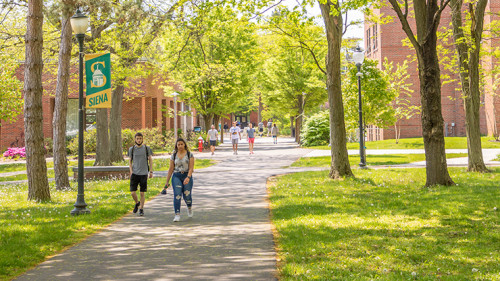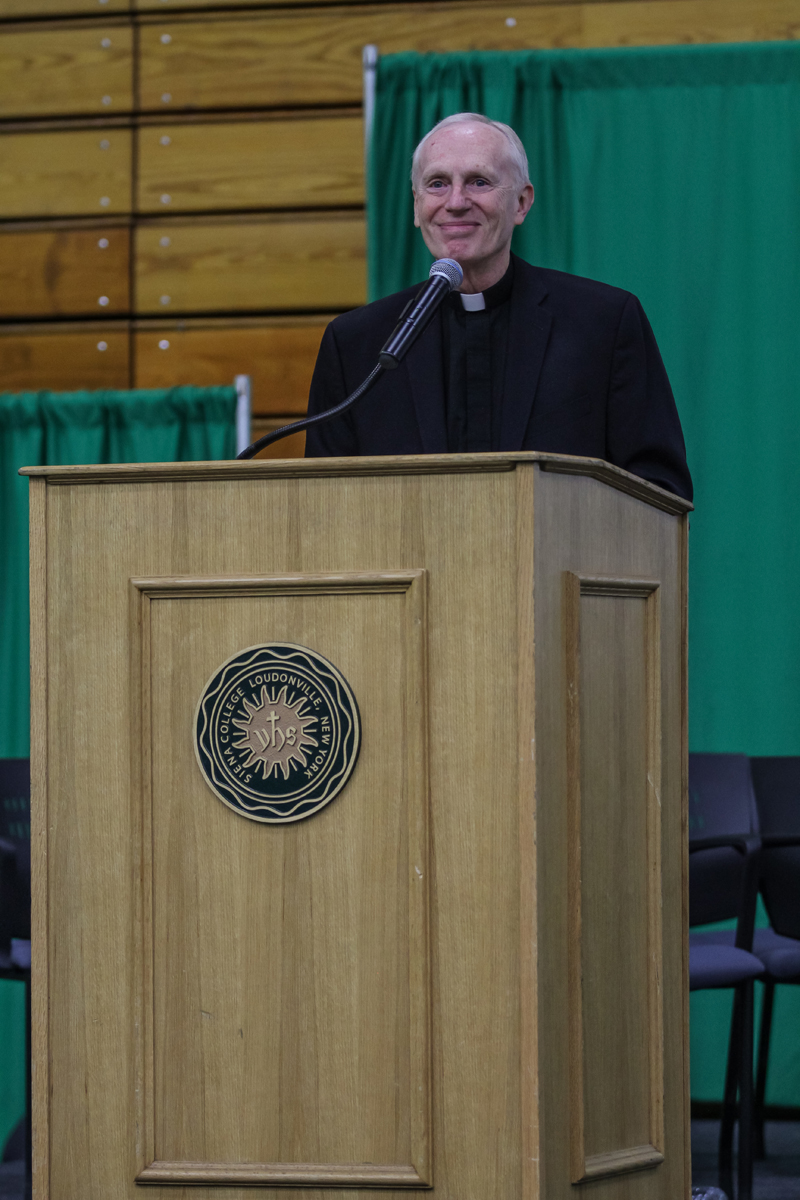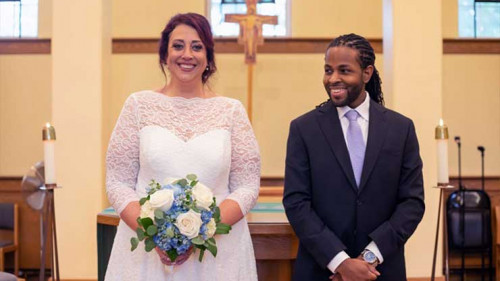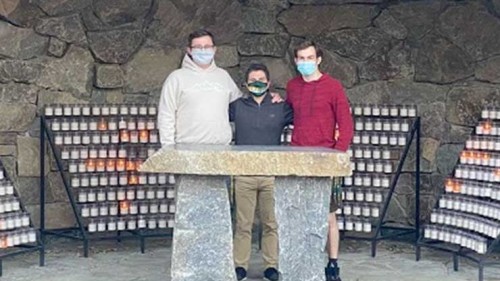

By Eric Guzman '12
The culmination of the 25th Annual Martin Luther King Jr. and Coretta Scott King Lecture Series on Race and Nonviolent Social Change was an interesting speech by Bishop of Albany Howard J. Hubbard, D.D.
Bishop Hubbard delivered an address titled, “The Continuing Challenge of Dr. Martin Luther King’s Vision for Today’s World" to a crowd of about 2,000 people, including students, faculty, staff and administrators, and Capital Region residents and community leaders.
“Bishop Hubbard comes as a leader of the church community, a leader of the Capital Region, a leader in our nation," said Siena College President Father Kevin Mullen '75, O.F.M., Ph.D. “He serves as a voice for justice and peace on the world stage.”
Hubbard’s address reflected upon the messages of Dr. King through the lens of Catholic Social Teaching. “I would like to suggest that the life, the vision, the teachings and ideals of Dr. Martin Luther King would have involvement, intimately, were he alive today, in four critical issues: poverty, immigration, incarceration and the voice of religion in the public forum,” said Hubbard.
Within the realm of poverty, Hubbard spoke of the nearly 46-million Americans that live below the federal poverty level. He reiterated to the crowd gathered inside the Alumni Recreation Center that Catholic Social Teaching suggests equality, not greed. “There is a social symbiosis that we need to create a society in which smart, hardworking people can be safe and prosperous and they in turn reinvest their share of prosperity back into society.”
Hubbard also spoke about the issue of the nearly 10-12 million undocumented immigrants in the United States. He called for simpler ways to obtain citizenship and advocated on behalf of the Dream Act, which would enable young immigrants to become citizens if they go to college or serve in the military.
With the highest incarceration rate in the world, Hubbard also identified the need for a justice system that would bring healing to both victims and perpetrators in the United States. He suggested a restorative justice plan that would bring victims together with criminals. The Bishop suggested that the plan would allow crime victims and survivors to commemorate milestones while allowing inmates to understand the cascading effects of their wrongdoings. He said it would also provide a forum for inmates to talk about their actions.
Hubbard’s discussion on religion in the public forum suggested that 80% of Americans refer to some religious tradition. Once in public though, he said they do not embrace it. Hubbard explained that these values cannot be silenced.
“This series has always had a refreshing message, addressing how the teachings of Dr. King are relevant,” said Former Albany County Executive Mike Breslin. “We need religious values in the public discussion … many people are unaware of the depth of inequality and injustice in our society.”
Dr. King's message resonates within the Siena community as well. Bonner Service Leader, Sarah Ortega ’14 said, “One of the goals of the Bonner Program is to tie Franciscan Tradition to service. MLK is a figure who incorporated faith and social justice, something we look to do every day.”
Each year the series aims to preserve the legacy of the nonviolent human rights movement as it was expressed in the life and teachings of Dr. King, exploring how problems such as racism, sexism, classism, militarism and prejudice in our nation and throughout the world can be confronted effectively through dynamic efforts informed by social justice and nonviolent action. Bishop Hubbard’s address has added to the quality and integrity of the series, celebrating Dr. King’ teachings with the Siena community and Capital Region.
Photo Credit: Dave Boswell '12
Video By: Patrick Mantle '12 and Joe Frumusa '12

